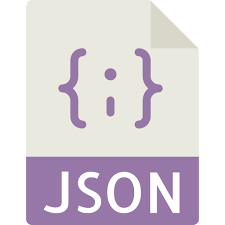


MySQL is an open-source relational database management system that is
widely used by developers and organizations to store and manage data. The
latest version of MySQL, version 8.0, was released in April 2018, and it
comes with a wide range of new features that have been well-received by the
MySQL community. In this blog post, we will explore some of the most loved
new features of MySQL 8.0.
Window functions are a
powerful SQL feature that allows developers to perform calculations across
multiple rows. MySQL 8.0 includes support for window functions, which
enables developers to perform complex calculations with ease. For example,
developers can use the ROW_NUMBER() function to assign a unique row number
to each row in a result set, or they can use the RANK() function to assign a
rank to each row based on a particular criteria.
Common Table Expressions (CTEs) are a useful SQL feature that allows developers to define a temporary result set that can be referenced multiple times in a query. MySQL 8.0 includes support for CTEs, which makes it easier for developers to write complex queries. For example, developers can use CTEs to write recursive queries, which are queries that reference themselves.
Invisible columns are a new feature in MySQL 8.0 that allow developers to create columns that are not visible in a SELECT * query. This is useful for developers who need to add columns to a table for administrative or performance reasons, but do not want those columns to be visible to end-users. Invisible columns can also be used to store metadata about a table, such as the date it was created or the last time it was modified.

MySQL 8.0 includes a wide
range of new JSON functions that make it easier for developers to work with
JSON data. These functions include JSON_OBJECT(), which allows developers to
create JSON objects from SQL data, and JSON_TABLE(), which allows developers
to extract data from JSON objects and arrays. JSON support has been improved
in MySQL 8.0 with faster parsing and indexing.
MySQL 8.0 includes a number of performance improvements that make it faster
and more efficient than previous versions. For example, the InnoDB storage
engine has been improved with faster locking, better scalability, and
improved crash recovery. The optimizer has also been improved with better
index and join algorithms, and improved query execution time.
Security is always a concern when it comes to managing data, and
MySQL 8.0 includes a number of new security features that make it more
secure than previous versions. These features include improved password
handling, support for TLS 1.3, and better auditing capabilities. MySQL 8.0
also includes support for roles, which allows developers to manage
permissions more easily.
Invisible indexes are
another new feature in MySQL 8.0 that allow developers to create indexes
that are not used by the optimizer. This is useful for developers who want
to test the impact of different indexes on query performance without
affecting the production environment. Invisible indexes can also be used to
create indexes that are only used by specific queries.
Replication is a key feature of MySQL that allows data to be
copied from one database to another in real-time. MySQL 8.0 includes a
number of improvements to replication, including support for multi-source
replication, improved conflict detection, and better performance.
Replication can also be managed more easily with the new replication
management utilities.
MySQL 8.0 is a significant update to the popular database management system, and it includes a number of new features that have been well-received by the MySQL community.